The Wolves Within, Part I
For there are many sheep without and many wolves within...
“29 For I know this, that after my departing shall grievous WOLVES enter in among you, not sparing the flock.
30 Also of your own selves shall men arise, speaking perverse things, to draw away disciples after them.”
— Acts of the Apostles 20:29-30 KJV
Related Entries
From the dawn of Christian orthodoxy, pernicious heresies have lurked at the fringes, seeking to subvert the unadulterated truth of the Gospel. The Apostle Peter warned us from the infancy of the Church that false prophets would seek to infiltrate the ranks of the faithful, clandestinely introducing doctrines of perdition that undermine the very foundations of our faith:
But there were false prophets also among the people, even as there shall be false teachers among you, who privily shall bring in damnable heresies, even denying the Lord that bought them, and bring upon themselves swift destruction.
— Second Epistle of Peter 2:1 KJV
These damnable heresies, veiled in deception, have ever threatened to lead astray the unwary and undiscerning.
In the perilous modern landscape of theology, the injunction of the Apostle Paul to the Corinthians resonates with renewed urgency:
3 But I fear, lest by any means, as the serpent beguiled Eve through his subtilty, so your minds should be corrupted from the simplicity that is in Christ.
4 For if he that cometh preacheth another Jesus, whom we have not preached, or if ye receive another spirit, which ye have not received, or another gospel, which ye have not accepted, ye might well bear with him.
We are admonished too by the Apostle Jude to steadfastly “contend for the faith”, guarding against the insidious machinations of those who would pervert the simplicity of Christ’s redemptive message with the promulgation of their devilish doctrines.
The Apostles were not afraid to contend with the heretics of their day and age, particularly the Apostle Paul. Not one to mince words and always one to name names, Paul is so zealous in his defense of the faith that he curses the sorcerer Elymas with blindness for seeking to lead others astray (Acts 13:8-12). This unflinching attitude toward the wolves within was the hallmark of the Apostles and early Church fathers. When confronted by the notorious heretic Marcion, Polycarp did not hesitate to denounce him in scathing terms (emphasis mine):
Polycarp himself replied to Marcion, who met him on one occasion, and said, "Dost thou know me?"
"I do know thee, the first-born of Satan."
Such was the horror which the apostles and their disciples had against holding even verbal communication with any corrupters of the truth; as Paul also says, "A man that is an heretic, after the first and second admonition, reject; knowing that he that is such is subverted, and sinneth, being condemned of himself."
— Irenaeus, Against Heresies, Book III
Irenaeus’ mentor exemplifies the uncompromising stance the true Church has against all who would seek to corrupt the purity of Christ’s doctrine.
For the advent of false teachers will inevitably herald the dissemination of another Jesus, another Spirit, and another Gospel — pale imitations that ensnare the unsuspecting and lead the unwitting astray from the path of Truth and righteousness.
— Marcion of Sinope (85-160AD), arch-heretic and Gnostic theologian.
Thus, guided by the eternal Wisdom of God, we are adjured to “[speak] the truth in love”, rejecting the siren song of false teachers and upholding the unassailable verities of the Gospel with unwavering conviction. I feel it necessary to reiterate I do this not from a place of animosity, but profound concern. I grew up being taught many of these same doctrines, these same supposedly revealed truths; but where man’s doctrines conflict with the clear words of Scripture, I must cling fast to that pure faith. Good men can disagree on the nature or timing of the Millenium, but we can not agree to disagree on the fundamental nature or audience of the Gospel.
It is for this reason that I am compelled to speak out against a theology that has done much damage to the cause of Christ; a theology that seeks to pervert the simplicity of the Gospel by reestablishing the barriers that Christ has broken down through His sacrifice (Ephesians 2:13-16); a theology that sees the resumption of animal sacrifice not as an abomination, but a boon. That theology goes by many names: Christian Zionism, Darbyism, Dual Covenant Theology, or Scofieldism.
It is perhaps best known as Dispensationalism.
Throughout the course of this series, we will survey the theological roots of this system, its place within the greater context of eschatology, and why dispensationalism truly is a “different gospel”. We will also explore the two men most responsible for its creation and promulgation, as well as their voluminous occult affinities: John Nelson Darby and Cyrus Ingerson Scofield. The rise of this ideology goes hand in hand with advent of political Zionism, and its impact upon the American church’s view of national Israel is inescapably linked to that rise. As we will also elucidate in this series, that was a very intentional objective.
“We define a cult as a religion which claims to be Christian while emptying Christianity of that which is essential to it. If Dispensationalism does this, then Dispensationalism is a cult and not a branch of the Christian church. It is as serious as that.
It is impossible to exaggerate the gravity of the situation.”
— John H. Gerstner, Wrongly Dividing the Word of Truth: A Critique of Dispensationalism
In the annals of Christian eschatology and interpretation, the Jesuit theologian Francisco Ribera stands as a towering figure whose theological innovation left an indelible mark on the landscape of Christian thought. Francisco Ribera is often credited with being one of the first theologians to introduce the idea of a future restoration of national Israel during the eschaton, thereby laying the intellectual groundwork for later dispensationalist and premillennialist interpretations. His stratagem was straightforward: refute the notion that the events described in Revelation had already occurred (the prevailing belief held by Christians), or that they were presently unfolding. Francisco Ribera's principal endeavor entailed crafting a scholarly counterargument against the prevailing Protestant belief that the apocalypse prophesied in the Book of Revelation was unfolding in their contemporary era. Instead of the Catholic Church as the titular Whore of Babylon, Ribera boldly asserted that these events were destined to transpire in the far distant future.
In his lengthy opus, In Sacrum Beati Ioannis Apostoli, & Evangelistiae Apocalypsin Commentari, Ribera expounded upon the conditions preceding the end times. In it, he stipulates that the end of days could only manifest upon the reconstruction of Solomon's Temple alongside the inferred return of the Jews to their homeland. Ribera's treatise stands as a scholarly bulwark, fortifying the theological positions of the Catholic Church while repudiating the prevailing Protestant eschatological interpretations. Thus, Ribera's seminal treatise unveiled a novel narrative wherein the signs of the eschaton would only unfold against the backdrop of a resurgent Israel — a narrative that would later find fertile ground in the now burgeoning theology of dispensationalism.
— Four Horsemen of the Apocalypse (1887), ill. by Viktor Vasnetsov.
Before exploring the history of dispensationalism, it is important to fully quantify the manner in which this system differs from historic Christian teachings on both the millennial Kingdom of Christ and the nature of the Ekklesia. A more thorough examination of these doctrines will be given in a future entry, but it is important nonetheless to enumerate them from the outset:
Consistent, literal interpretation of the Bible.
The Bible should be taken literally in ALL cases unless the context clearly indicates otherwise. This is especially true for prophecy, where God's promises to national Israel and His plans for the future are to be understood as straightforward declarations of His intentions.
The Old Testament should be used to interpret the New.
Sharp distinctions are made between faithful Israel and the Ekklesia (Matthew 16:18).
God has distinct promises and purposes for both national Israel and the Church. While national Israel's promises are primarily earthly and national, the Church's promises are heavenly and spiritual.
The Church Age is therefore a “parenthesis” in God’s plan.
History is divided into an arbitrary number of distinctions, called dispensations, in which God fundamentally alters the manner in which He interacts with humanity.
Scofield’s notes lay out 7 dispensations starting at Creation and ending with the Kingdom, though the precise number is heavily disputed amongst adherents of this theology.
Salvation was obtained through the Law under the Mosaic Covenant.
As a dispensation, grace begins with the death and resurrection of Christ. The point of testing is no longer legal obedience as the condition of salvation…
— The Scofield Reference Bible
There are different gospels for different peoples, with anywhere from two to five different gospels.
The Abrahamic Covenant is fulfilled through the physical Israel.
Restoration of national Israel and the rebuilding of the Third Temple will precede the Last Days.
Often, but not always, this is accompanied with a resuming of the Levitical animal sacrifices.
Literal, 7-year “Great Tribulation” will unfold with a singular Antichrist ruling from the rebuilt Temple of Solomon in Jerusalem.
This will be preceded by a “secret rapture” of the Church.
National Israel will be mercilessly persecuted since the Church does not exist on Earth anymore.
Now indeed, as we peer back into the record of Christian theological history, we can assuredly discern faint echoes of premillennial anticipation amidst the writings of the early Church fathers. The belief in an Earthly millennial reign is where the similarities between the systems end however. Alan P. Boyd, himself a dispensationalist, penned the seminal thesis on the key distinctions between historic premillennialism and dispensationalism (emphasis mine):
Dr. [Charles] Ryrie’s statement [that dispensationalism was the view of the early church fathers] is historically invalid within the chronological framework of this thesis. The reasons for this conclusion are as follows:
1). the writers/writings surveyed did not generally adopt a consistently applied literal interpretation; 2). they did not generally distinguish between the Church and Israel; 3). there is no evidence that they generally held to a dispensational view of revealed history; 4). although Papias and Justin Martyr did believe in a Millennial kingdom, the 1,000 years is the only basic similarity with the modern system (in fact, they and dispensational pre-millennialism radically differ on the basis of the Millennium); 5). they had no concept of imminency or a pre-tribulational rapture of the Church; 6). in general, their eschatological chronology is not synonymous with that of the modern system.
Indeed, this thesis would conclude that the eschatological beliefs of the period studied would be generally inimical to those of the modern system (perhaps, seminal amillennialism, and not nascent dispensational pre-millennialism ought to be seen in the eschatology of the period).
— Alan P. Boyd, A Dispensational Premillennial Analysis Of The Eschatology Of The Post-Apostolic Fathers (Until The Death Of Justin Martyr)
From the pen of Justin Martyr to the pensées of Irenaeus, a small but notable segment amongst early Church fathers espoused the belief in a future reign of Christ upon the Earth. But as Mr. Boyd has noted, their eschatologies bore marked distinctions from that of dispensationalism. Therefore, the oft-repeated claim by dispensationalist theologians that their eschatology is the historic view of the church fathers simply holds no water.
Unlike the doctrinal edifice erected by Ribera and his intellectual progeny, these ancient theologians did not carve sharp delineations between the Ekklesia and Israel, nor did they envisage the reconstruction of a third temple upon the grounds of earthly Zion. Instead, their visions of the end times were imbued with a harmonious marriage of Christ’s Church and His New Covenant, wherein the Mosaic law found its fulfillment in the crucible of Christ's redemptive mission (Matthew 5:17, Hebrews 8). Thus, while the seeds of premillennialism may have been sown in early Christian thought, the theological construct erected by Ribera and his successors stands as a distinctive aberration in Christian eschatology.
"What the Plymouth Brethren have done in country towns no one but those who are intimate with the life of country churches can tell. There is no Congregational minister, either Baptist or Independent, who is not ready to denounce them as the greatest troublers of the peace of Israel since the days of Ahab.
Much in these days is said about the Jesuits, but the Plymouth Brethren will compare with them, both in respect to stealthy SLYNESS and persistent effort to make converts.”
— James Grant, The Plymouth Brethren: Their History & Heresies
Amidst the tumultuous currents of religious fervor brewing in the 1800’s, the Plymouth Brethren emerge as a formidable force under the leadership of John Nelson Darby. Wielding their distinctive brand of theological innovation like a double-edged sword, they cleaved through the fabric of traditional orthodoxy with audacious zeal. Their backers and benefactors included many within the British aristocracy (emphasis mine):
The Brethren never had more than a few hundred members at any time, although two of them later became well known: Sir Robert Anderson, the head of Criminal Investigations for Scotland Yard and the man who ran the notoriously ineffectual Jack the Ripper investigation; and Aleister Crowley, a devout child who became the world’s most famous Satanist. Darby’s impact was not based on the numbers of his immediate followers, but on the widespread influence of his evangelical tours throughout Europe and America, his books, and especially, the sponsorship of the highest levels of the English aristocracy.
— Mike Minnicino, Darby Made ‘Christian Zionism’ for the Empire
At the heart of this doctrinal labyrinth lies the charismatic firebrand Darby, a man whose theological acumen and rhetorical prowess served as the lodestar guiding this budding denomination. Yet, as we peel back the layers of their theological tapestry, we are confronted with a stark tableau of doctrinal deviation.
Central to the theological architecture of the Plymouth Brethren is Darby's novel invention of dispensationalism — a hermeneutical framework that partitions the history of salvation into distinct epochs. These eras, or “dispensations”, are characterized by their own unique set of divine mandates. Yet, beneath this veneer of theological sophistication lies a pernicious seed of division; sowing discord within the body of Christ by erecting artificial barriers between the Church and faithful Israel. In Darby's eschatological schema, the Church and Israel occupy separate spheres of divine favor, each with its own covenantal destiny and eschatological trajectory — a notion that flies in the face of historic Christian orthodoxy and the clear teachings of Scripture.
In 1856, Darby’s self-professed prophetic insights warned him that Russia was the nefarious embodiment of the anti-Christ: Magog made new. Amidst the swirling currents of international intrigue that decade, Darby also beheld the unfolding drama of the American Civil War as a portentous sign of the “End Times”, a prophetic harbinger of apocalyptic doom. In a stunning display of theological audacity, Darby counseled his American disciples to abstain from the fray, cautioning them against the futile pursuit of earthly alliances in a world careening towards cataclysm. For Darby, the path to salvation lay not in the tumultuous arena of Earthly conflict, but rather in the serene repose of celestial anticipation. Then, as now, headlines drove hermeneutics.
The failed predictions of Darby have only been compounded by his proselytes in subsequent generations.
— John Nelson Darby (1800-1882).
Like Marcion before him, Darby also crafted his own version of the Bible for promulgation amongst his followers. The doctrinal pollution in it is staggering, and therefore, a proper exploration and refutation of its errors is outside the scope of this series. Yet, one of the changes made to the text is particularly alarming and worthy of notation. The King James Version renders John 6:69 as so (emphasis mine):
And we believe and are sure that thou art that Christ, the Son of the living God.
Darby’s translation instead replaces the title the Son of the living God with this one (emphasis mine):
and we have believed and known that thou art the holy one of God.
That title, the Holy One of God, is never used by the Apostles or Christ. It used by the demons however (emphasis mine):
Saying, Let us alone; what have we to do with thee, thou Jesus of Nazareth? art thou come to destroy us? I know thee who thou art; the Holy One of God.
This title is used only twice in the KJV to refer to Christ, and both times it is exclusively used by demons!
John Nelson Darby was a prolific writer and commentator, not only penning his own Bible translation but also authoring over 50 books and numerous treatises during his lifetime. While Darby has often been accused of being a Freemason, he denies these charges in his writings (emphasis mine):
"the wisdom of God in a mystery," which word means what only the initiated understand: as in Freemasonry, I do not know anything about it because I am not initiated.
— John N. Darby, Deliverance from the Law of Sin
Yet, for one who is supposedly ignorant of Masonry’s ways, he seems to know a great deal about the inner workings of the lodges (emphasis mine):
Supposing we were a body of Freemasons, and a person were excluded from one lodge by the rules of the order, and instead of looking to the lodge to review the case, if it was thought to be unjust, each other lodge were to receive him or not on their own independent authority, it is clear the unity of the Freemason system is gone. Each lodge is an independent body acting for itself…
— John N. Darby, On Ecclesiastical Independency
For a man supposedly unacquainted with Freemasonry, it seems extraordinarily odd to compare the workings of the local church to a Masonic lodge.
Equally alarming is Darby’s repeated, methodical, and prolific usage of occult & Gnostic terms in his writings. Take for instance his usage of the term The Absolute to describe the Almighty (emphasis mine):
The essential being of Godhead cannot change, as is evident - the Absolute, as men speak…
— John N. Darby, The Humiliation of Christ
That term, The Absolute, is one used quite prolifically in Theosophical and occultic literature (emphasis mine):
The Absolute: An Omnipresent, Eternal, Boundless, and Immutable PRINCIPLE…
— H.P. Blavatsky, The Secret Doctrine
Additionally, Darby repeatedly used the title the Architect to refer to the LORD (emphasis mine):
It is life; that is, Christ, as having, as Son, life in and from the life of the living God, life divine, life in Himself (proved in resurrection), which is the foundation and security of the assembly built by the heavenly Architect…
— John N. Darby, The House of God; the Body of Christ; and the Baptism of the Holy Ghost
We see God in nature that is true, but all this knowledge does not lead man to God. Man has spoilt all. The traces of God, of the Architect, are there; but it is a ruin.
— John N. Darby, Christ, the Faithful Witness
The Architect, also known as the Great Architect, is a Masonic title for their god that can not be found in Scripture whatsoever.
The above are hardly the only occult dog-whistles used by Darby in his writings. His lengthy occult lexicon includes, but is not limited to:
The Consummation of the Ages
Divine Being
Divine Doctrine
Divine Essence
Divine Energy
Divine Intelligence
Divine Principle
Energy of Faith
Energy of Love
Universal Truth
Universal Principle
Vital Force
Vital Principle
Vital Energy
Lord of Love
The Coming One, a Gnostic euphemism for the alleged future Antichrist
You will find none of these terms in the Holy Bible, but you will find them in Gnostic literature. Now it is true that Madame Blavatsky would publish her seminal work, The Secret Doctrine, years after Darby’s death. However, Theosophy is merely a modernistic repackaging of ancient Gnostic beliefs and teachings. Thusly, his usage of these terms is even more damning due to their strictly Gnostic origins at the time of Darby’s writings.
While Darby can disingenuously feign ignorance of Masonry’s inner workings, he is rather obviously quite familiar with the Mystery religion’s terminology and literature.
"Her princes in the midst thereof are like wolves ravening the prey, to shed blood, and to destroy SOULS, to get dishonest gain.”
— Ezekiel 22:27 KJV
As we peer back into the historical record of Christian discourse, the forerunner of premillennial dispensationalism is unmistakably seen in the writings of Jesuit theologian Francisco Ribera. Carried forward by Darby and his Plymouth Brethren, this novel theological paradigm has undoubtedly engendered a dangerous complacency amongst believers, one that fosters an escapist mentality. This apocalyptic theology fixates upon the “imminent” rapture and the cataclysmic tribulation to come, withdrawing in the face of today's confrontations.
Dispensationalism, by its very nature, is a modernist theology within the legacy of Christian thought. Its novelty is not what troubles me however. With its partitioning of salvation history into discrete epochs, and its artificial delineation between faithful Israel and the Ekklesia, this doctrine stands as a testament to the theological chasm that has attempted to cleave asunder the body of Christ. Once the full account of this theology is taken in, it becomes impossible to not discern the unmistakable signs of a heresy now fully formed.
The eschatological fatalism bred by dispensationalism leads to spiritual lethargy and moral indifference. Vast swathes of believers have been lulled into a false sense of security, mentally insulated from the harsh realities of a world groaning under the weight of sin. Rather than engaging with the pressing social, moral, and ethical challenges of the day, Darby and the disciples of his doctrine retreat into the cloistered confines of their eschatological enclave. They are more than content to await the apocalyptic denouement from the comfort of their theological ivory tower.
This is even doubly compounded by the largely slavish devotion to the physical nation of Israel, an infatuation that is frankly nothing short of idolatry in many evangelical circles. Gross atrocities are being waged right now on the American dime, and airmen are self-immolating on the lawn of the Israeli embassy rather than participate in the American aided genocide of Gaza. All the while, far too many followers of the Prince of Peace excuse these crimes due to a mistaken belief that the physical seed of Israel is somehow imbued with God's eternal blessing; this despite being in open rebellion against His Son for nearly 2,000 years.
As we peel back centuries of theological obfuscation, we have yet to even encounter the still enigmatic figure of Cyrus I. Scofield. It is this man's life and legacy that hold the keys to unlocking the mysteries surrounding the rise of dispensationalism. In the ensuing chapters of this series, we shall delve even deeper into the tangled web of deception woven these last two centuries. For how influential Scofield’s ideology has become, his life has largely been obscured from the public view. It is far past time that the piercing light of truth be unleashed upon the shadowy figures and occult influences that lurk behind the veil of dispensational theology.
In the annals of Christendom, heretical tendrils have long sought to entwine and choke out the pure vine of Gospel truth.
Vociferously defending those unchanging doctrinal truths is not a preference — it is our duty.
— The Wolves Within I, digital art, 2023.
“Think what it means that an elaborate, ramified and comprehensive system, which embraces radical teachings concerning such vital subjects as the preaching and ministry of Jesus Christ, the character and "dispensational place" of the four Gospels, the nature and era of the Kingdom of God, the Sermon on the Mount, the Gospel of the Kingdom, and other Bible topics of first importance, a system of doctrine that contradicts what has been held and taught by every Christian expositor and every minister of Christ from the very beginning of the Christian era, should have suddenly made its appearance in the latter part of the nineteenth century, and have been accepted by many who are prominent amongst the most professedly orthodox groups of Christians!
It is an amazing phenomenon indeed.”
— Philip Mauro, The Gospel of the Kingdom



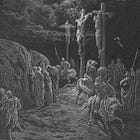
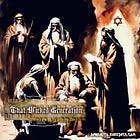
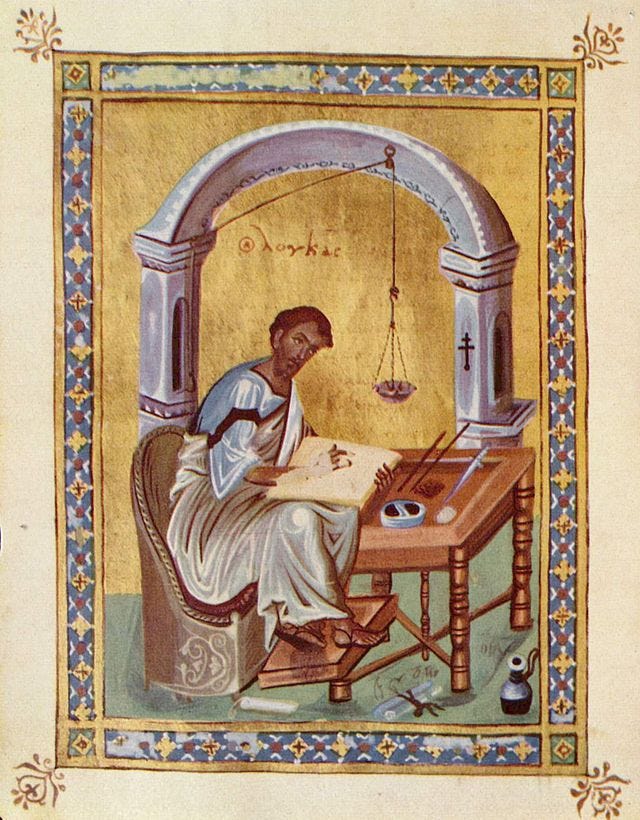
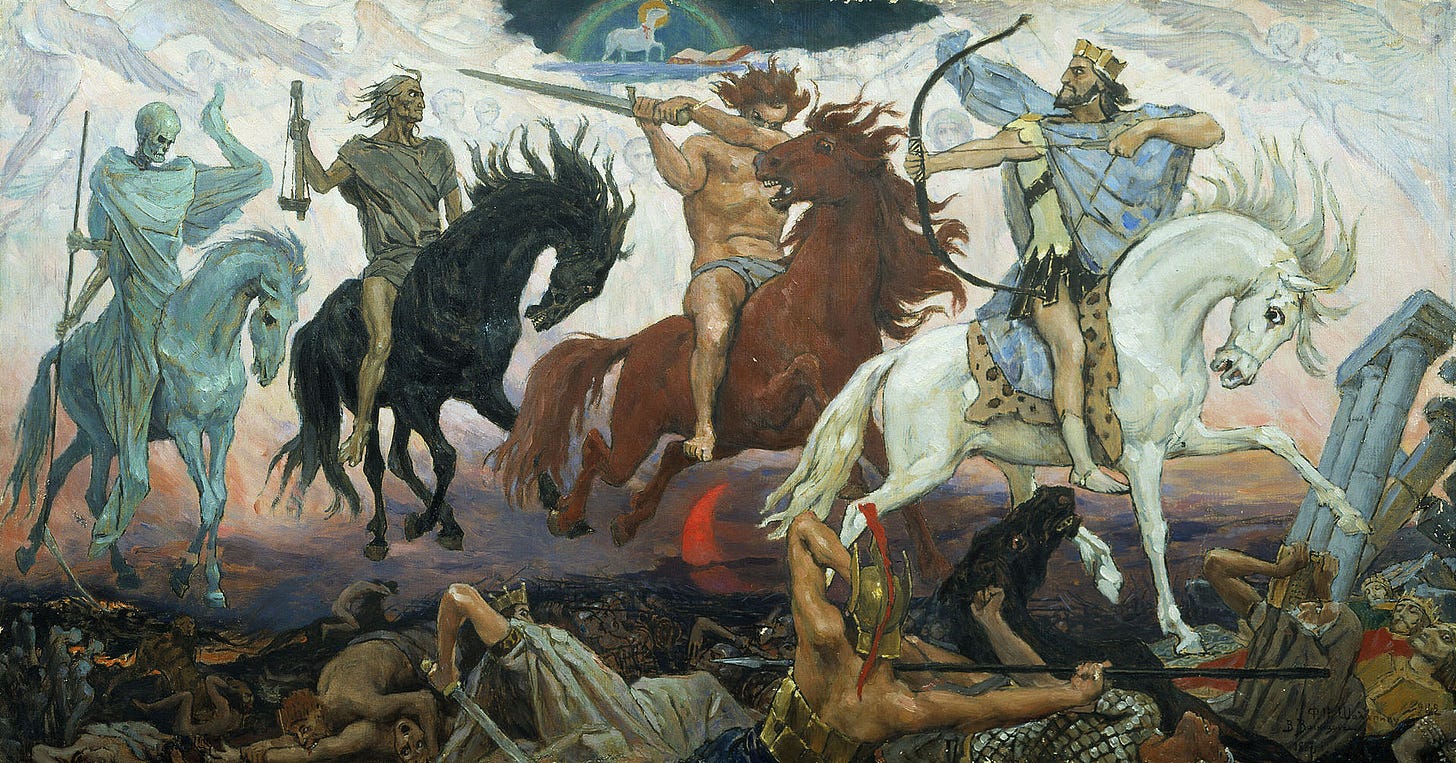
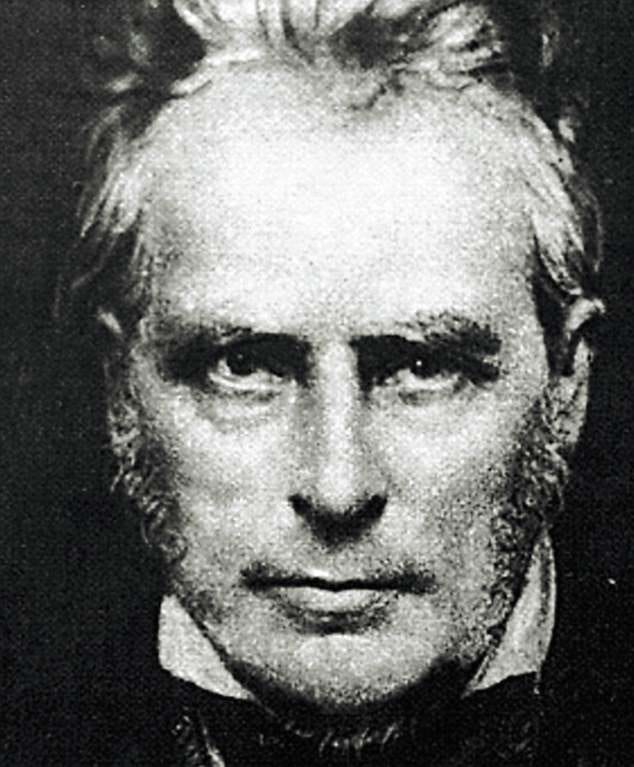
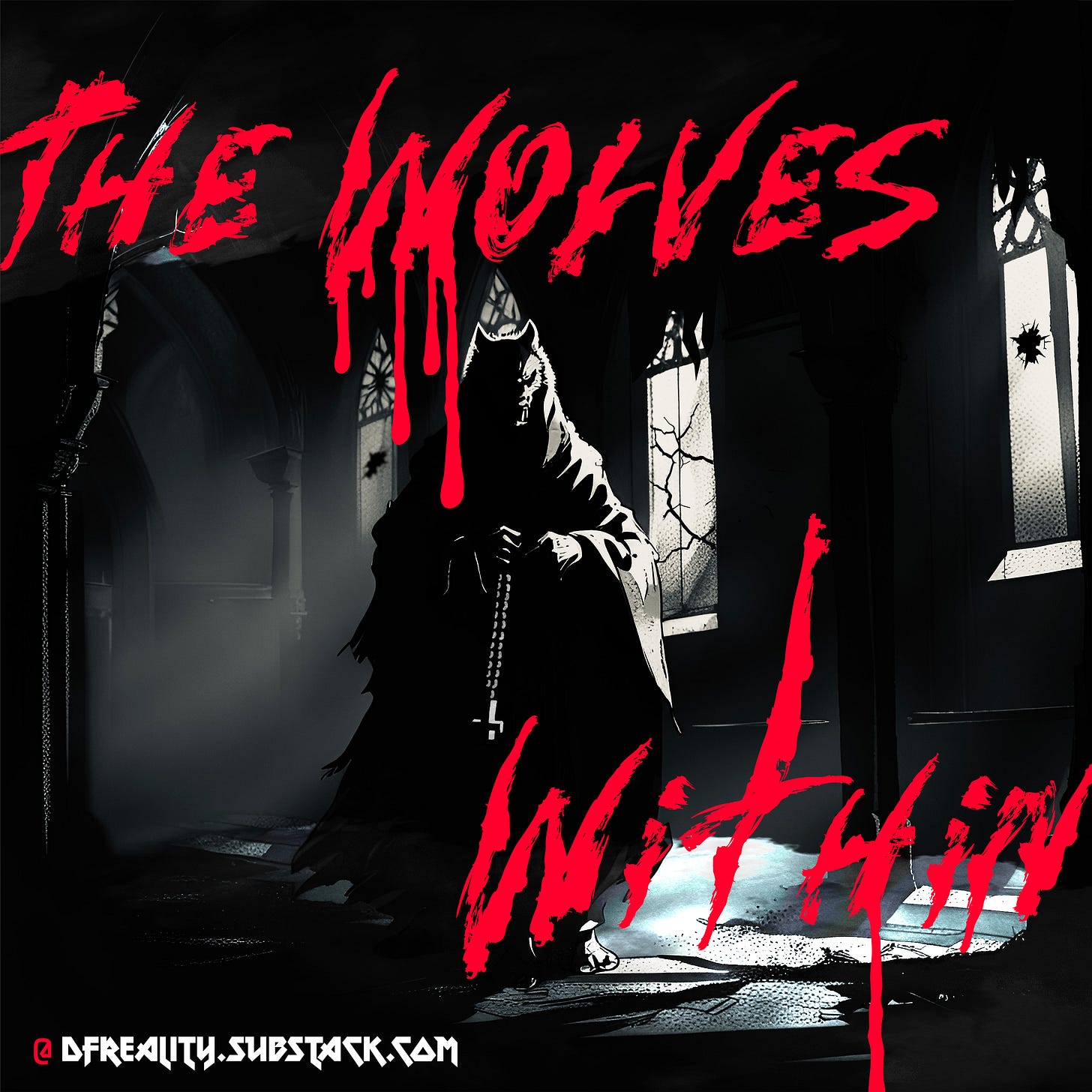


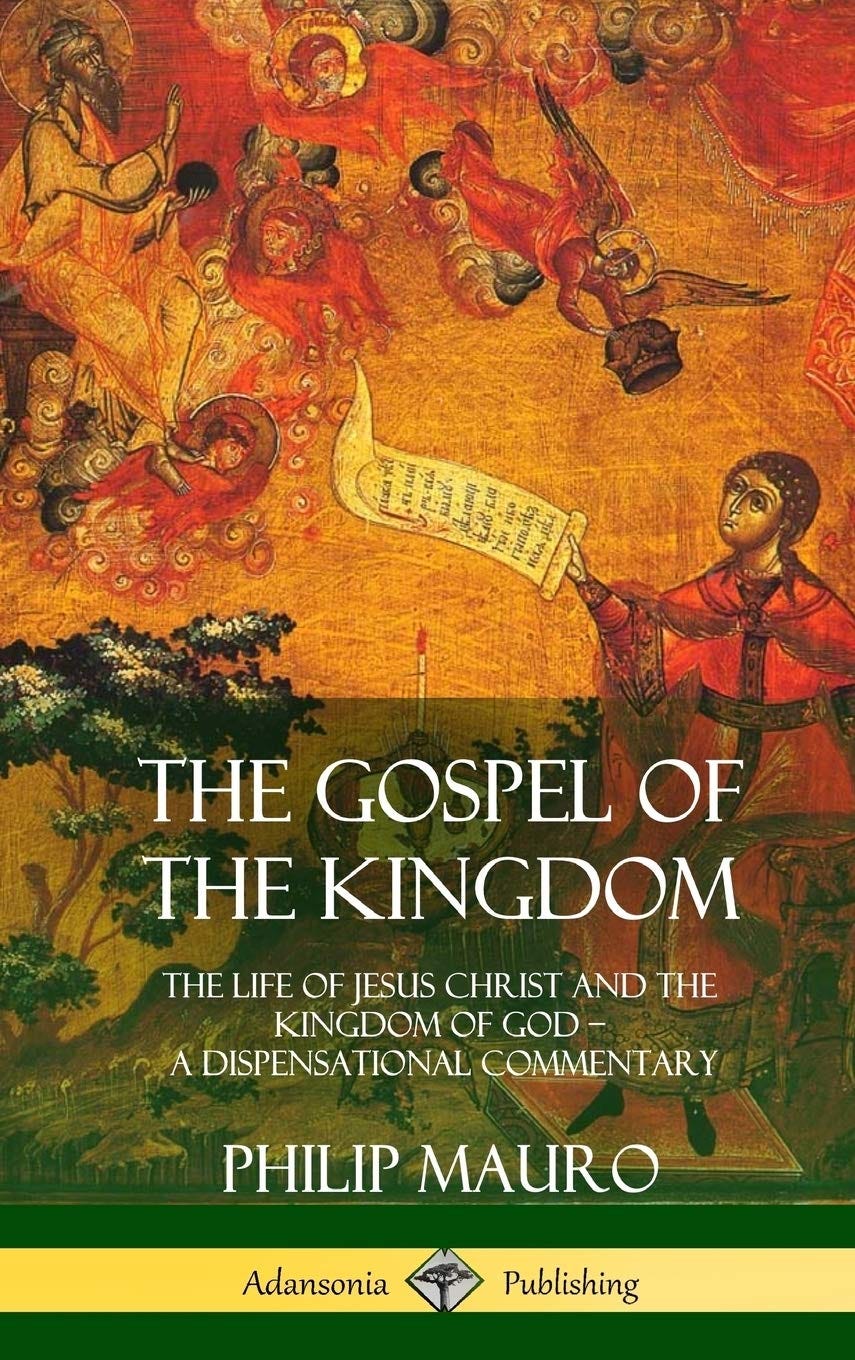
If the church was doing its job people wouldn’t feel powerless to engage against the evil. So the church has created this insecurity in its followers that sends them fleeing, escaping to the alternatives. The alternatives waiting for them with arms wide open including New Age, Hollywood Superheroes, Fantasy Literature bringing life to magick including Harry Potter (did this genre start with Lion Witch & Wardrobe?)
It is the all encompassing wicked manipulation of Christianity that has caused me the most confusion of what is true, correct Christian belief! Thankfully, I know what's going on! Your Research, along with many other brave whistleblowers, have cleared up any and all misunderstanding!